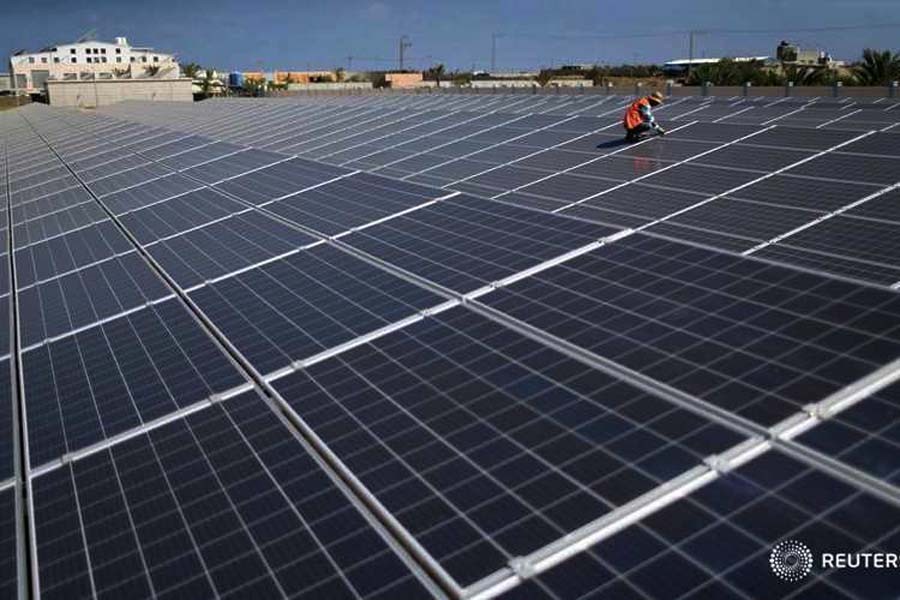
Published :
Updated :

South Korea is likely to miss its 2030 renewable energy target even though the country’s renewables capacity is expected to triple from 2019, consultants Wood Mackenzie has said.
South Korea, the fourth-largest economic country of Asia, relies on coal and nuclear power to produce about 70 per cent of the country’s electricity.
In 2017, the country’s energy ministry released its power plan through 2030 amid growing calls to improve the country’s air quality and fears over atomic power.
The plan calls to increase the amount of renewable power in the country’s energy mix to 20 per cent by 2030 from 6.0 per cent, reducing its dependence on coal and nuclear, reports Reuters.
However, Wood Mackenzie analysts said on Wednesday in an outlook on South Korea’s energy policy that the country will only achieve a 17 per cent mix by 2030.
Zi Sheng Neoh, a managing consultant at Wood Mackenzie, told a press conference where the company released the report that the country would come close to the target but that was likely to high of a bar to clear.
“South Korea will be achieving 17 per cent, instead of hitting the 20 percent target but it is indeed very close,” he said. “South Korea’s renewables target is ambitious.”
Neoh said solar and wind are expected to make up 11 per cent of country’s total energy mix by 2030, while coal and nuclear are likely to make up 40 per cent and 25 per cent of the country’s total power mix, slightly higher than their official targets of 36 per cent and 24 per cent.
Still, Wood Mackenzie expected the country’s renewables capacity to triple from 2019 to 60.5 gigawatts by 2030 with solar and wind installed capacity making up the majority of the this growth.
To meet the country’s renewables target, the consultancy said businesses should be given open access to purchase electricity directly from renewable generators to reduce costs.
A South Korean advisory group said last year the government should plan to increase the nation’s share of renewable power generation in its generating mix to as much as 40 per cent by 2040 to keep abreast with global trends and lower its fuel import dependency.
The country’s Ministry of Trade, Industry and Energy is set to present its long-term energy plan in April, according to a statement last week.


 For all latest news, follow The Financial Express Google News channel.
For all latest news, follow The Financial Express Google News channel.